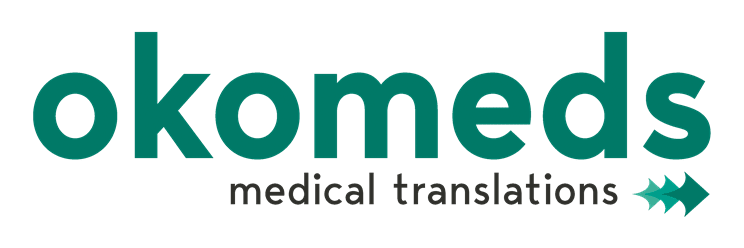
06 Apr Keep an eye on medical translation
Have you ever thought about the possibilities of medical translation in ophthalmology? Eyes are highly subject to be translated – figuratively, of course. Here, in Okomeds, we are listing some of the possibilities of medical translation and interpreting for the welfare of eyes.
Medical translation keeps an eye on your sight- Eyes are a very sensitive human organ; so all care is never enough. In the case of ophthalmological products as contact lenses, contact lens solutions, physiological saline solutions… the need of a right and accurate medical translation of their pertinent leaflet is key for avoiding side effects. That will correctly explain the patient its right use, but also any contraindication.
- Medical interpreting in lectures. There are many international ophthalmology congresses and conferences all over the world. Such as the PAAO (Pan-American Association of Ophthalmology) or the Optometry’s Meeting (organised by the American Optometric Association). In all those cases, the medical interpreting of several languages – English, Spanish, French, Portuguese or German, among others – plays a really important role for easing communication.
- Researchers are always looking for new advances in medical translation; and ophthalmology is one of the main medical researching areas of all. Such information is usually written in English – as a common language. Different kind of ophthalmological articles, publications, thesis… they all are subject to be translated into different languages. So, the need of a medical translation for wide spreading the contained information is really important. It constantly helps improving science and benefits the welfare of eyes’ patients.
- When a patient is going to have a surgical operation – for example cataracts or laser eye surgery – he or she must previously sign an informed medical consent form. Such document is needed for considering the health of the patient and confirming that he/she has been correctly informed by the healthcare practitioner about benefits and potential risks. But why if the patient is coming from a foreign country and does not correctly speak the language? In such scenario, the need of a medical translation (for the informed medical consent form) and a medical interpreting (for mediating between both parties) is really essential.
That is how medical translation keeps an eye on your sight.






No Comments